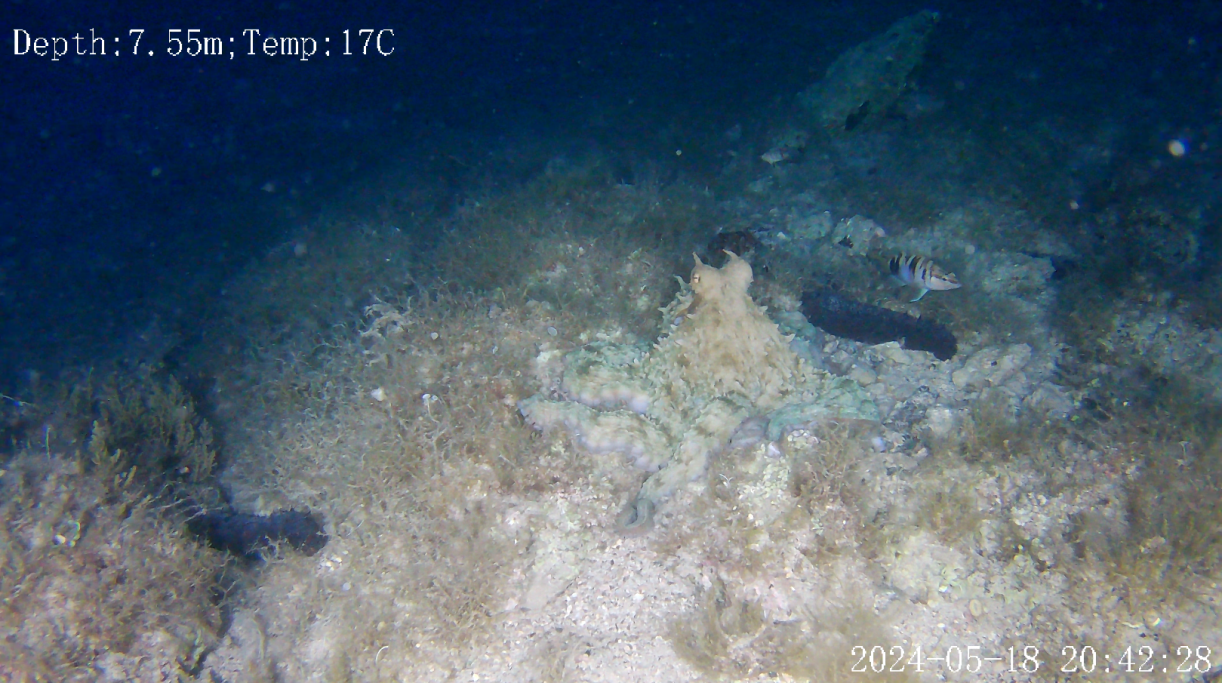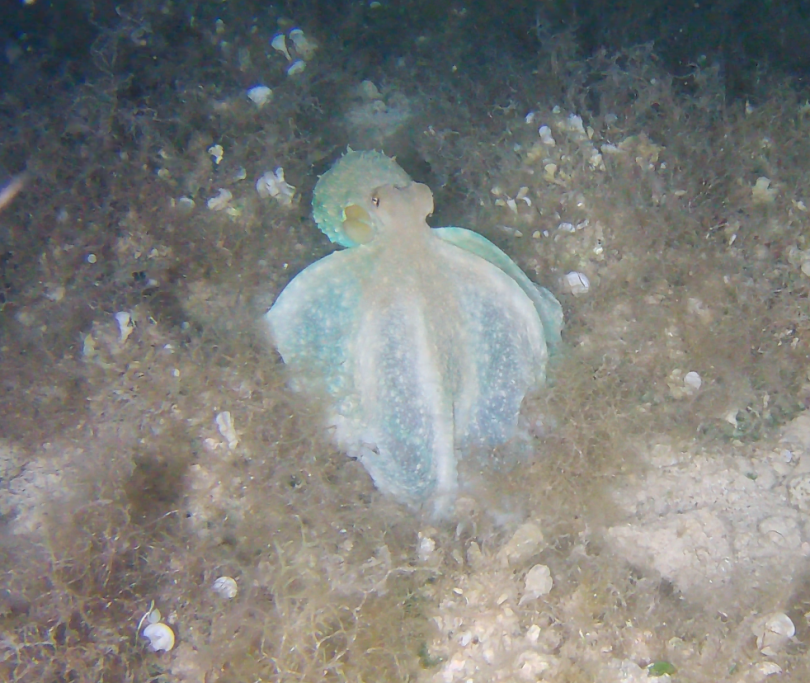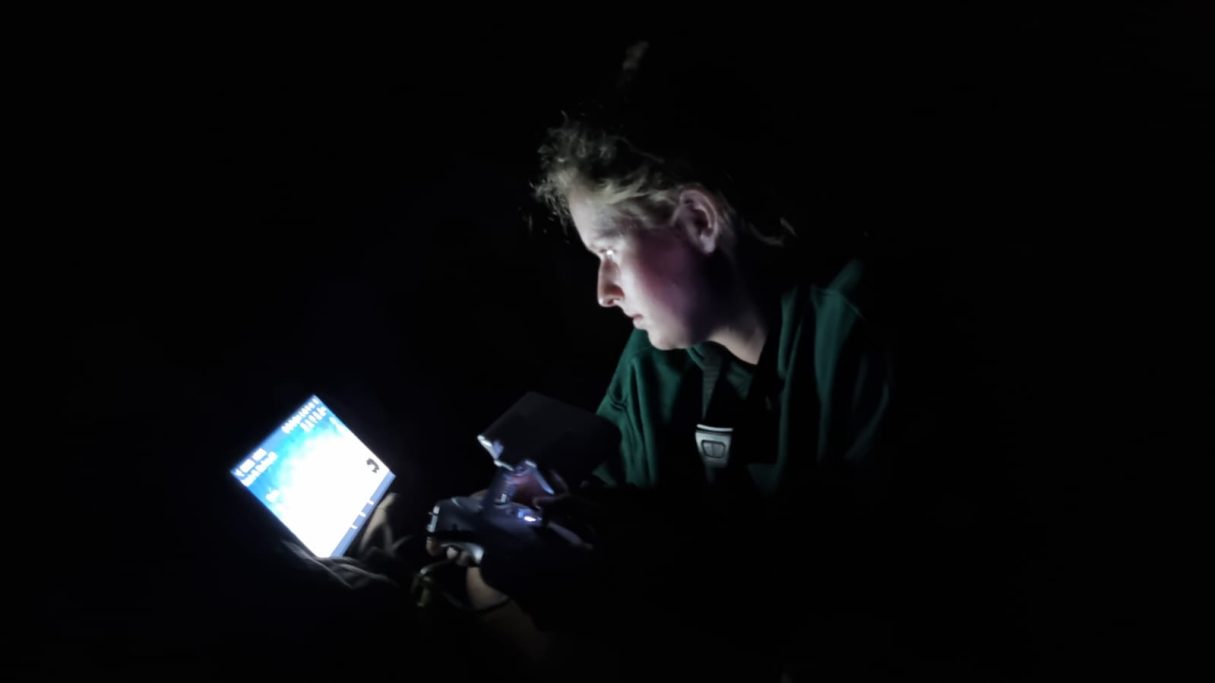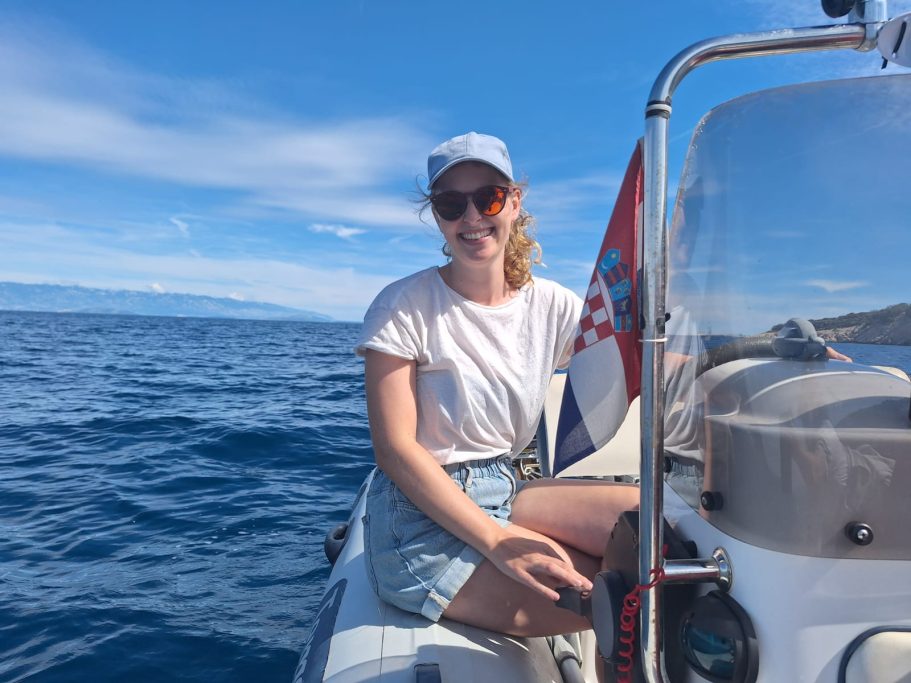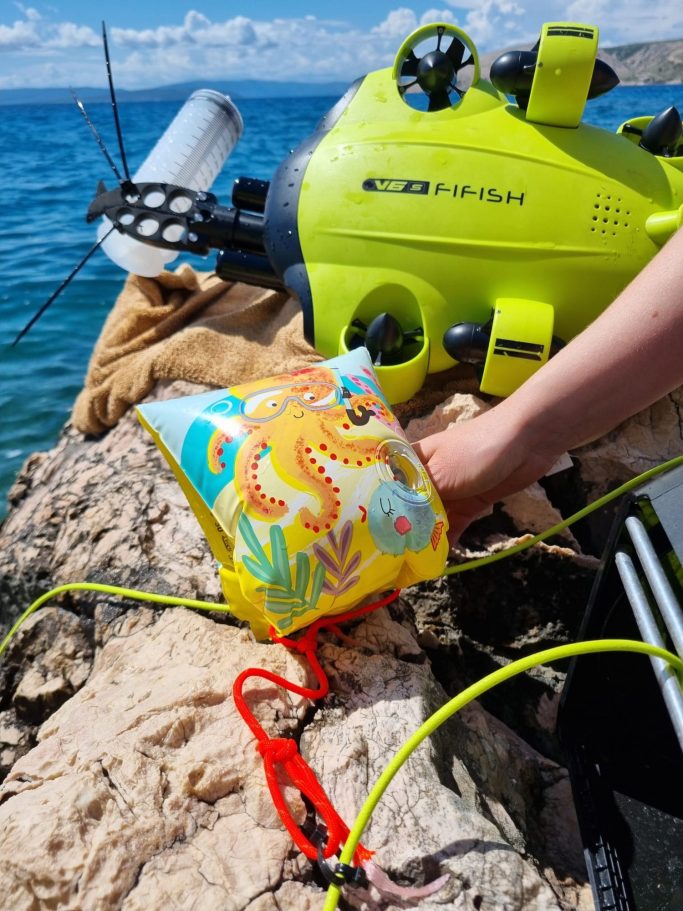Octopus Intelligence: Exploring the Minds of the Oceans Smartest Creatures
by Selina Ernst (26.05.2025)
Octopuses are often seen as the mysterious geniuses of the sea - curious, adaptable, and almost alien. With the project Octopus Intelligence, we want to get to know these fascinating animals: Can we learn to communicate with them? How do they express themselves? What do they need? Are they as smart as it is believed?
To answer these questions, the Octopus Intelligence working group is developing an artificial octopus den that can be placed in the wild. This artificial den is not only to offer octopuses a safe hiding place, but also to provide us with a unique window into their lives. We want to bring the research experiments to the octopuses and not the octopuses into our lab. At the same time, we are building a citizen science project, inviting everyone who is fascinated by octopuses to help collect observations and contribute to marine research.
Why does this matter? Because octopuses can teach us about the evolution of intelligence and communication in biological systems. They are so different from us - more ‘alien’ than ‘human’. And precisely because of that, we need to understand them better. Only by truly understanding can we effectively protect them and their environment.
The whole Octopus Intelligence team is very interdisciplinary. We have people with backgrounds from biology, ecology, technology, and computer science including AI. They are working on things like making the technique like cameras and screens, which we want to use in the artificial octopus den, to be able to stay underwater. How do you build these things to withstand the great pressure underwater? How do you manage biofilm - algae growing on everything? And with much video material from cameras at the den and from the citizen scientists: how do you deal with all this many hours of video footage? AI is being trained to help us.
I found my way into this project through a mix of passion and serendipity. I originally studied Landscape Ecology for my Bachelor’s degree - but I always missed the ocean. So, I pursued a Master’s degree in Marine Environmental Sciences. Internships led me down many different paths until I found myself on Krk Island with MareMundi. Later, when I heard about the new collaboration of MareMundi with TU Graz in the Octopus Intelligence project, I immediately knew: I had to try. I simply asked if I could join - and today, I am part of this unique research team.
My work is a mixture of technology and nature: at home, in Germany, I spend my time analyzing hours of octopus videos, managing our website, creating social media content and answering emails. At Krk Island, in the field, I go snorkeling or maneuver a small underwater robot (ROV, remote operating vehicle) to search for octopuses - and experience adventures you won’t find in any lab. My field backpack contains some unusual items, like inflatable arm floats (with cute octopus printed on it) to mark the ROV cable and protect it and the boat engines from accidents.
Of course, not everything goes according to plan in fieldwork. Once, the camera of our ROV fogged up from the inside, and we could not observe any octopuses. At the time, it was frustrating. But later, we were thankful: had we continued operating the ROV, our car battery would have died, because we forgot to switch off the light. We always went out at night, because the octopuses at Krk Island are night active. We would have been stranded in the middle of the night, far from help.
What keeps me motivated? Inspiring other people to reconnect with nature. If our citizen science project encourages people to dive in, discover the underwater world, and feel the sense of wonder by observing an octopus, that’s a success. Because only those who feel connected to nature will fight to protect it.
Watching octopuses is like witnessing a miracle - every single time. Their curiosity, creativity, and surprising interactions with their environment show just how much we still have to learn about life underwater. Finding my first octopus during the first field trip was a truly magical moment, but I was so excited that I maneuvered the ROV into the ground and the octopus jetted away. We did not find this one again, but many much more.
My hope for the future? That we begin to see animals like octopuses not as resources but as sentient beings deserving of respect. That we work toward a world where humans and oceans coexist sustainably. And that we avoid repeating the mistakes of industrial farming with even more species.
If you could ask the ocean one question, what would it be?
If I could ask the ocean one question, it would be: “How many secrets do you hold for us?”.
Which three items would you give an octopus when it moves into a new den?
If I could offer an octopus three items for its new den, it would be: a remote control for choosing its favourite show on its TV, a delicious crab as a welcome snack, and a little puzzle to play.
What advice would you give someone dreaming of becoming a marine scientist?
Get involved in practical work as early as possible, do internships (hopefully paid ones…. but this is another topic), get to know people, build a network.
Curious to dive deeper into the world of Octopus Intelligence?
Learn more about the project, discover field updates, and find out how you can get involved by visiting their official Website!
Wir benötigen Ihre Zustimmung zum Laden der Übersetzungen
Wir nutzen einen Drittanbieter-Service, um den Inhalt der Website zu übersetzen, der möglicherweise Daten über Ihre Aktivitäten sammelt. Bitte überprüfen Sie die Details in der Datenschutzerklärung und akzeptieren Sie den Dienst, um die Übersetzungen zu sehen.
